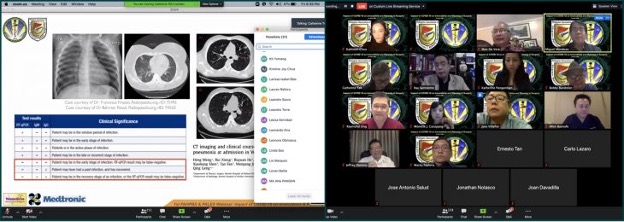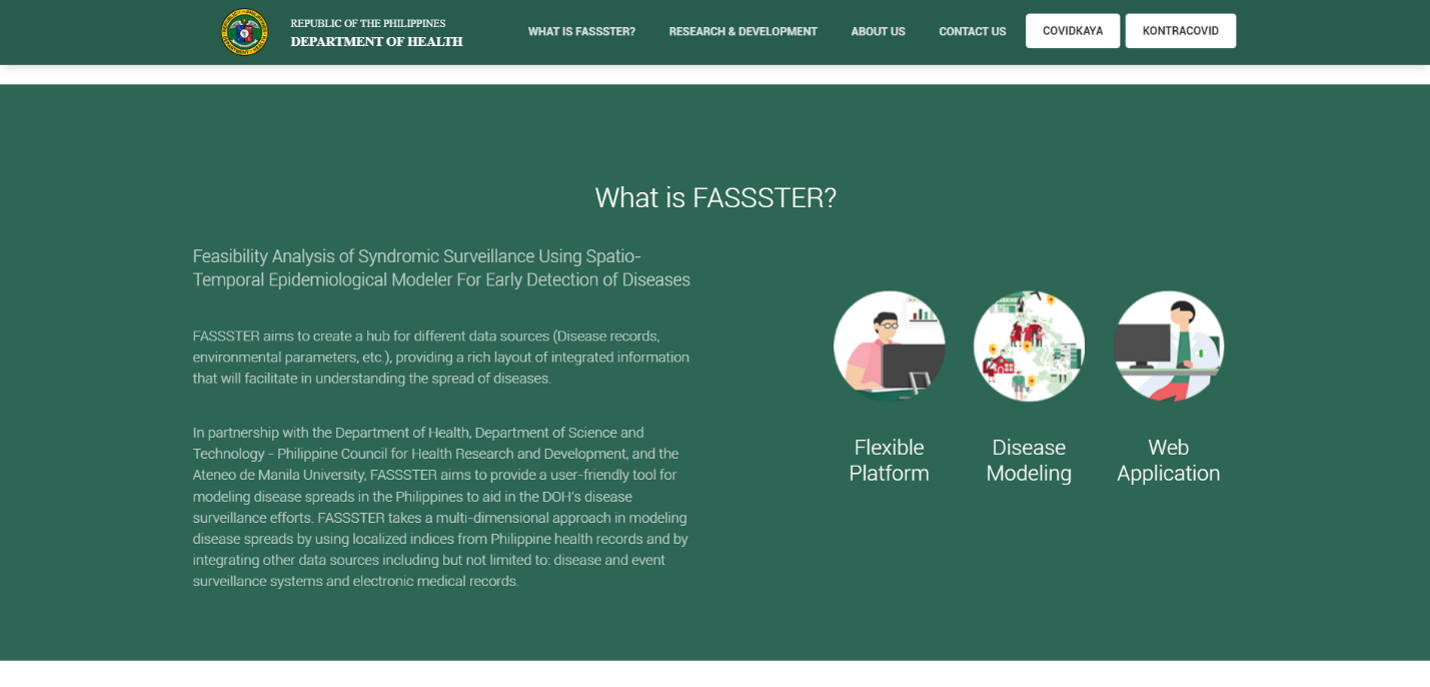
Newsletter Archive
Issue No.003
APNIC Academy Training |
ASTI powers through with COVID-19 initiatives |
|
Chelsea Abellana |
|
The Advanced Science and Technology Institute (ASTI) is the research and development arm of the Philippines’ Department of Science and Technology (DOST) focused on the advanced fields of communications engineering, microelectronics, and information technology. Since its inception in 1987, it has contributed greatly by producing numerous projects that support public health, e-governance, education, and disaster risk management in the country. |
|
ASTI’s connection with APAN was established in 2003 through Philippine Research, Education and Government Information Network (PREGINET), the Philippines’ only national research and education network (NREN). To formalize and strengthen its participation, ASTI formed a memorandum of understanding with APAN in 2008 to become a primary voting member of the consortium. Through this collaboration, APAN and ASTI collectively participate and promote activities relating to the development and deployment of next-generation networking applications and services in research and education. |
|
Through APAN, ASTI has provided opportunities for telemedicine initiatives to develop even way back in 2007, but this advanced significantly in the height of COVID-19 through their close partnership with the Telemedicine Network of the Philippines (TNP), bridging different medical societies and hospitals in the Philippines and the world. |

On 24 April 2020, the webinar "Impact of COVID-19 on Innovations and Planning in
Surgery" by the Philippine Association of HPB Surgeons (PAHPBS) and the Philippine
Association of Laparoscopic and Endoscopic Surgeons (PALES) centered on the impact
of COVID-19 disruptions and discussions on emergency endoscopy.
|
|
As early as February 2020, TNP, ASTI’s PREGINET, and medical societies in and out of the country conducted webinars where they could impart their knowledge and expertise in preparation for the spread of the virus. This included the Research Institute for Tropical Medicine, San Lazaro Hospital, the Philippine General Hospital, and the Lung Center of the Philippines which gave them insights on how to perform extracorporeal membrane oxygenation for COVID-19 patients with severe respiratory distress. TNP also collaborated with the Philippine College of Surgeons, pharmaceutical industries, and non-surgical specialties like the Department of Health, the Philippine Thyroid Association, and the Philippine Society for Microbiology and Infectious Diseases. |
|
With the help of ASTI’s PREGINET, it was possible for TNP to hold teleconsultation during the pandemic, allowing patients to have remote consultations with their doctors. This then paved way for their partnership with the National Telehealth Center in the formulation of the teleconsultation guidelines which were presented during an APAN meeting through the Medical Working Group headed by the Telemedicine Development Center of Asia (TEMDEC). |

The Department of Health’s COVID monitoring platform, Feasibility Analysis of
Syndromic Surveillance using Spatio-Temporal Epidemiological Modeler (FASSSTER).
|
|
Apart from PREGINET, ASTI’s Computing and Archiving Research Environment (COARE) project also contributed greatly to the fight against COVID-19. Some of its important contributions include the allocation of its supercomputing resources and provision of data storage services to various research institutions such as Folding@Home and the UP Philippine Genome Center. COARE assisted the Department of Health in the launching of its COVID monitoring platform called the Feasibility Analysis of Syndromic Surveillance using Spatio-Temporal Epidemiological Modeler (FASSSTER). |

DOST-VI’s Safe, Swift & Smart Passage (S-PaSS) Website
|
|
DOST Regional Office VI made use of COARE’s storage and computing resources as well for the development of the Safe, Swift & Smart Passage (S-PaSS) management system, a web-based system that manages the travels and mobility of individuals in and out of the Philippines. |
|
PREGINET and COARE are both S&T infrastructures under ASTI’s Information Network for Open and Viable Applications and Technology Exchange (InNOVATE) program which has come to be beneficial in scientific research and large data transfer processes that assist in broadening our knowledge about COVID-19. |
|
ASTI is the Philippines’ sole primary voting member of APAN. ASTI hosted the 23rd APAN Meeting in 2007 and the 41st APAN Meeting in 2016. To know more about ASTI’s projects, visit their website here. |